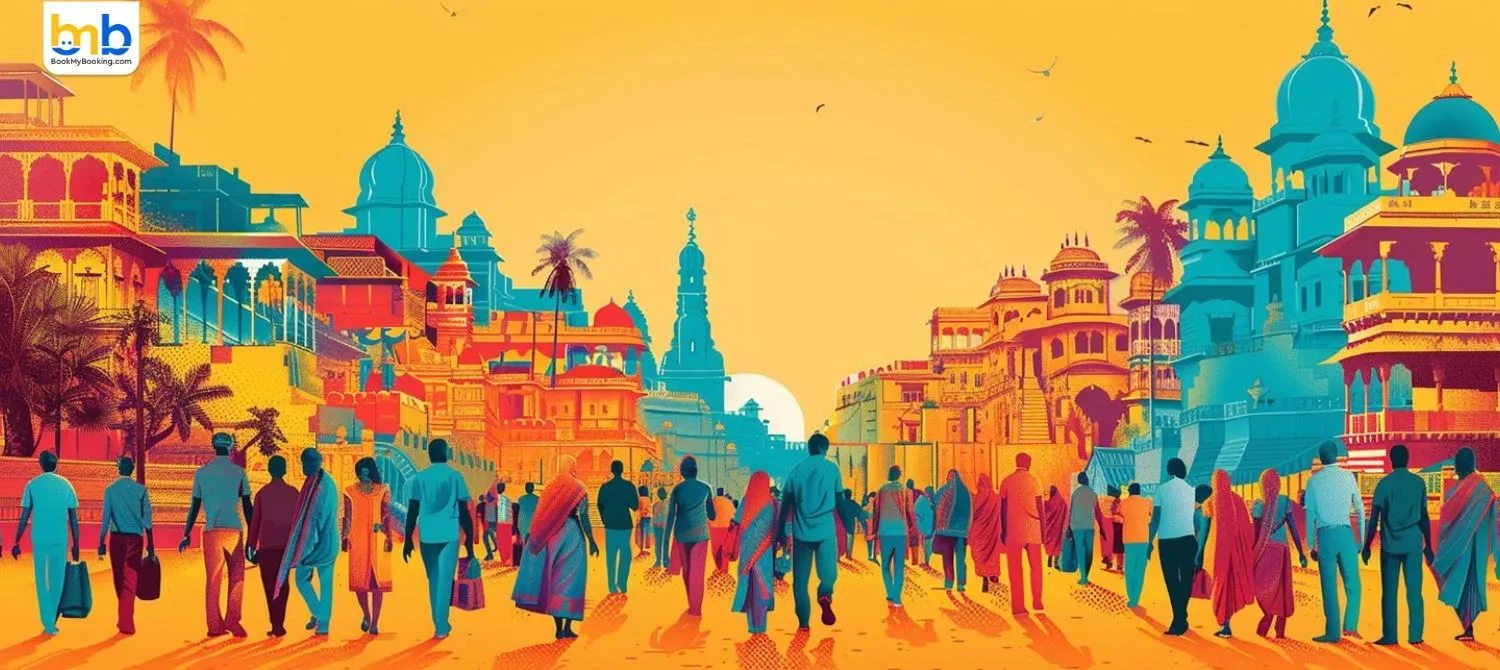This involves promoting unconventional travel destinations that offer more immersive and prolonged travel experiences, as well as reconsidering traditional concepts like mass bus tours and universal resort vacations. These rarely lead to long-term viability, even though they might increase short-term earnings. Kidd feels that some of the most pressing challenges stem from the ways tourism has traditionally been structured.
India's tourism industry is rebounding. There is undoubtedly hope in the travel and hospitality sector as a result of the recovery in foreign visitors and the pandemic-induced high levels of domestic travel. If we are to learn anything from the growing overtourism crises in parts of Europe and now Asia, it's that success in tourism is not measured by numbers alone. What matters more is how we travel, who benefits, and whether our journeys uplift the places and people we visit or strain them to a breaking point.
The pressure is already being felt in places like Shimla, Leh, Goa, and portions of Kerala in India. Roads are congested, and east disposal systems are everloaded, leading to frequent feelings of alienation among residents in their own communities during the busiest time of year. This is a warning, not only an annoyance.
Overtourism is about infrastructure under strain, short-term rentals driving up housing prices, fragile ecosystems pushed to the edge, and locals feeling increasingly disconnected from the places they call home. It's about who tourism serves and who it forgets.
There is a fundamental truth that not all tourism is created equal. After two decades working in the travel industry, I believe that the real question isn't whether we should travel but how we can travel better. Better for the people who live in the places we visit. Better for the environment. Better for the travellers themselves.
Some of the most pressing challenges stem from the ways tourism has traditionally been structured. The all-inclusive resort, the Big Bus tour, and the whirlwind tour of bucket list destinations. These models were primarily built for volume and profit, not for positive impact. There is also the question of who benefits. In many places, a significant proportion of Toronto's tourism revenue doesn't stay in the country. Studies have shown that in destinations like Bali, more than half of tourist spending can leak out of the economy due to foreign ownership. In the Caribbean, it can be as high as 80%. That's a staggering loss for communities that bear the cost of hosting tourists every day.
Some governments and cities are already leading the way. Penang in Malaysia has taken steps to reduce short-term rentals and inconvenience to locals. Others are investing in campaigns to educate tourists on respectful behaviour, basic things like water usage, noise levels, and littering, so that locals and visitors can coexist more harmoniously. The real question isn't whether India should continue to promote tourism. It's how?
We need to shift from chasing volume to prioritising value and impact. This consists of promoting unconventional travel destinations that offer more in-depth and prolonged travel experiences. As well as reconsidering traditional concepts like mass bus tours and Universal Resort vacations. These rarely lead to long-term viability, even though they might increase short-term earnings.
The responsible travel could look like-
Promoting community-led tourism that ensures economic benefits stay local. It means supporting homestays, cooperatives and small businesses.
The government should implement regulations to address short-term rental noise levels, littering, and visitor behaviour, as seen in cities like Penang in Malaysia. Travellers must be aware of local customs, avoiding sacred sites when inappropriate, and remembering that destinations are not playgrounds but homes. Travellers should be aware of sustainable tourism, which requires infrastructure that supports ecologically friendly practices. Whether it's avoiding single-use plastic in the hills of Himachal or respecting water scarcity in Rajasthan, sustainable tourism requires education and action from both operators and travellers. Tour operators, travel companies, and even digital platforms have a crucial role to play by actively designing trips around slow travel that promote lesser-known locations that collaborate with local communities and that put people and the planet before profits. The objective should be progress rather than perfection. Every thoughtful decision we make, like hiring a local guide or opting for an environmentally friendly accommodation, puts us in the right direction.
Millions are drawn to India by its natural beauty, rich cultural heritage, and kind people. However, these resources are not limitless. For the environment, both locals and travellers alike, the tourism boom might swiftly turn into a bust if deliberate, considerate, and sustainable techniques are not used.
Let's build a future where travel lifts people, protects our heritage, and enriches both host and guest. The time to change how we move through the world is now, before it's too late.
#bookmybooking #sustainabletourism #tourismupdate #incredibleindia #overtourism


